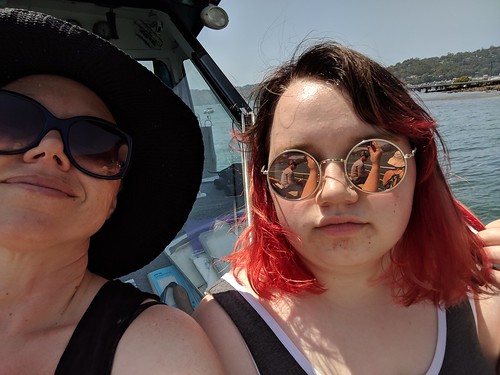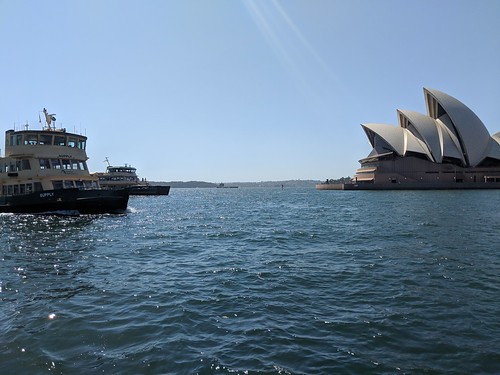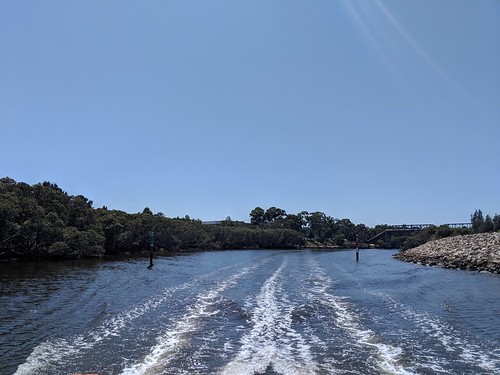a room made of leaves, by kate grenville
Sydney Town was a dusty ugly angry place, a sad blighted bit of ground on which too many souls tramped out their days dreaming of somewhere else.
Sydney Town was a dusty ugly angry place, a sad blighted bit of ground on which too many souls tramped out their days dreaming of somewhere else.
When the Pilgrim Fathers had sailed in the Mayflower to establish the first European colony in North America, there had been only about a hundred colonists—all of them free settlers—and half of them had died during their first winter. Captain Phillip was taking more than a thousand people—most of them already weak, unhealthy convicts—on an eight-month voyage to the other side of the world.
When the British were deprived of their American Colonies, they were at a loss for a gulag in which to dump their political dissidents, especially the Irish, their petty thieves and social inadequates. Australia was a godsend, better even than America. It was as good as the other side of the moon.
The trouble is a deep unawareness, and a wish to remain unaware, of the experience of living here, now.
Last night as I was drifting off to sleep, I thought about Frenchs Forest, where I grew up, and the tiny pieces of bush that I knew so well: the undeveloped block adjoining the high school, which is now the Northern Beaches Hospital; the little steep park around the corner from our house, called Blue Gum Reserve; and the steeper gully leading into Bantry Bay, which is now part of Garigal National Park, named for the traditional custodians of the land.
Liz has been talking about BART stations through time, and for a minute I could see all those little remnants joined up into one vast sea of dry sclerophyll woodland fading into the blue distance. There were sandstone boulders and shady overhangs. Banksias and grevilleas grew brilliant and spidery in the understory. It smelled like eucalyptus trees under the hot sun and sounded like cicadas singing. This was my home country for tens or hundreds of thousands of years, before the houses were built, even before special constable and crown lands ranger James Ffrench clear-felled the forest that now, in ghost form, bears his name.
I realized that the high sandstone flats, in Allambie and Narraweena and Beacon Hill, are carved and were likely ceremonial. People would live closer to fresh water, I thought. As I traced in my mind the clear cool creeks (Frenchs, Carroll, Bates) that run down into Middle Harbour, I realized that the rill that ran across the bottom of the high school oval and into Rabbett Reserve (willow trees and golden sand, frogs and tadpoles) ran the other way, into the confusingly-named Middle Creek. My home was high on the watershed itself.
Middle Creek flows not into Middle Harbour but into Narrabeen Lagoon. According to the Dictionary of Sydney:
The camp site at Narrabeen Lagoon was the last community Aboriginal town camp to survive in the northern Sydney suburbs. Probably, before the British invasion, Narrabeen Lagoon was one of the many coastal occupation sites offering seasonal shelter, fish and wetland resources… higher and less accessible country was used for ceremonial and educational purposes by the Gai-mariagal. Dennis Foley, a Gai-mariagal (Camaraigal) descendant, describes the area as ‘the heart of our world’.
Dennis Foley has written of the destruction of the camp in the 1950s, when what became the Academy of Sport was built. When I was a child in the 1970s, it was whispered that there were still people living there. These were the survivors of the genocide of the Eora people. There is no sign or memorial.
I’ve been thinking a lot about gods and goddesses and the dead: la Calavera Catrina and Guadalupe and Epona, all psychopomps, all syncretist beings like me. I’ve been thinking about AORTA’s Theory of Change:
Decades of neoliberal policy have erased histories of enslavement and genocide, and the movements that fought and resisted along the way. Today’s social movements are often disconnected from local, regional, national, and global movement history, which can lead to a sense of isolation and alienation.
And about this essay, in which:
Derrida asked, ‘Is it possible that the antonym of “forgetting” is not “remembering”, but justice?’
Gods and goddesses move around outside time, where the dead are not gone, just elsewhere. Historical memory is a kind of augmented reality, a map drawn in the colors of love and grief and anger. May I honor the memory of my dead. May they seek justice through me. May I be a good ancestor in my turn.
Imagine an Australia where the Aboriginal people negotiated a treaty and were never invaded by Europeans; where the trade routes embedded in the great songlines across the continent remained intact. Imagine what Australia could have been like today, if Aboriginal people had continued as the sovereign owners of the country. Imagine the Badi people farming pearls in partnership with Japanese traders; the Gija mining gold and diamonds and trading with the Chinese; the Pintupi sharing culture and wisdom with eco-tourists in a sustainable glass tower adjacent to Uluru; the Eora, enjoying the fruits of environmentally friendly condo development around Sydney Harbour.
I’ve had the Split Enz song “Six Months In A Leaky Boat” on constant replay this trip. I wasn’t at all surprised to find out Tim Finn wrote it after a nervous breakdown. I complained to Jeremy that everything I want to say about the legacy of settler colonialism and consequent mental illness, this song says in five minutes.
Aotearoa, rugged individual
Glisten like a pearl, at the bottom of the world
The tyranny of distance, didn’t stop the cavalier
So why should it stop me? I’ll conquer and stay freeAh c’mon all you lads, let’s forget and forgive
There’s a world to explore, tales to tell back on shore
I just spent six months in a leaky boat
Six months in a leaky boat
An old friend tried to argue that Doctor Who isn’t a modern King Arthur myth because “no one cares that much about stories.” And yet it moves. In case you’re not convinced that this song is a miracle of subversive irony, I’ll just point out that Thatcher banned it during the Falklands War.
There was a time when the notion of beauty would not have entered my head, when it was simply my place. I did not know it was beautiful
We enjoyed the Rivercat so much that we’ve taken two more ferries, one around Scotland Island from Church Point and one to the Basin from Palm Beach. Pittwater smells of salt and diesel, the smell of my childhood. There are cormorants and kookaburras, gulls and jellies.

I read this remarkable essay about Australian childrens’ books as well as a thoughtful article about the high country brumbies that I can’t share because it’s paywalled to hell. Like the mustangs in California, Australia’s feral horses wreck delicate ecosystems. Scientists and the traditional owners of country want them gone. But local cattlemen lost grazing land to the Snowy hydro scheme and to the National Parks well within living memory. To them, the brumby cull is the last straw. In the paywalled article, National Party MP Peter Cochran whines: “You don’t have to be black to feel a connection to this land.”
I grew up on stories about brumbies, by Mary Elwyn Patchett and Elyne Mitchell. In them, the wild horse is as much a part of the bush as the possum and the kangaroo. It took me decades to recognize this as a way for white people to lay claim to what wasn’t theirs. When I revisited Patchett hoping to read her books to the kids, I was appalled by her racism. Mitchell’s father was Harry Chauvel of the charge on Beersheba. Both writers are immersed and complicit in the white supremacist, militarized, settler-colonialist narrative that Evelyn Araluen describes in her essay.
Even my beloved Swallows and Amazons, with its naval officer father and its mother who grew up sailing on Sydney Harbour, instructs children in exploration, mapping and conquest. Maybe Westerners can’t have innocent pleasures. There is nothing – absolutely nothing – half so much worth questioning as simply messing about in boats. Do you want empires? Because that’s how you get empires.
I miss Port Jackson a lot; people who say that the Bay is like it don’t seem to know either of them very well.

Last year we went to Cockatoo Island. This year we decided to keep going, as far as we possibly could, all the way to Parramatta. It was very hot and we all got sunburned and this is the cover of our next album.

I expected something vaguely industrial from the Parramatta River. Instead I got mangroves and casuarinas, pelicans and ibis.

Sydney is so enormously full of surprises that I do not think I will ever come to the end of it.
I wrapped up a mighty four weeks at work before skiving off on (previously-scheduled) hols. My signature achievement so far is having matched names to faces for my boss’s eighteen direct reports. If you think I’ll retain that mapping after a fortnight sitting on Sydney beaches eating mangos, I have several bridges you might like to purchase.
This was my first time flying with my brand new cyborg leg. Despite what my doctors told me, it does indeed set off the metal detectors. I was frisked around the scar tissue, which was very interesting. Otherwise our flights were uneventful. You walk out of the Sydney international terminal into a wall of southern hemisphere summer and if you are me, it brings tears to your eyes.
Of course all you have to do is brag about your distress tolerance one time and the panic attacks come back.
There’s definitely a component of “I’m in a safe place to process shit, so shit’s coming up” going on. I’m trying to write about Australia and (surprise!) I have a lot of complicated feelings to untangle about Australia. I need to talk about it in a kind of Darmok way because it’s not rational, or linear, or English.
A book I think about all the time is Jane Jeong Trenka’s The Language of Blood, a memoir of finding your birth mother in Korea and then losing her to cancer, before you have time to learn enough Korean to say what you need to say. My mother and I didn’t communicate very well until very close to the end, when I had slowly, painfully taught myself enough about kindness to counteract my habitual ruthlessness. Immigrants are ruthless, my mother included. We jettison the past. We buckle ourselves into the geographical cure, and we don’t look back. If you look back, you turn to salt.
My bitterest memories of living in Australia are memories of living with untreated, out-of-control mental illness. What I’m feeling now are body-memories of the days when I had panic attacks 24/7. In Ireland, I found some distance (“some” = the width of the planet); in California, I found SSRIs. Now at last I can let myself understand what I gave up in exchange for these: the outlines of sacred animals on the high rocks, the Southern stars, the smell of eucalyptus trees hot under the summer sun. A landscape that made sense to me somewhere deeper than language.
This one is for all the other adult orphans out there. Yesterday was the third anniversary of Dad’s death. Tuesday is the fourth anniversary of Mum’s. I call this Shark Week and even though I don’t believe in astrology or the significance of dates, I always find myself glum.
That’s all right though. When I was younger and recovering from depression, I was flinchy around any negative emotion, in case it dragged me down into the dark again. But with age and having watched a lot of sad movies (on dates that Jeremy and I like to call distress tolerance dinner theatre) comes the ability to sit with my grief and not try to stuff it away in a box so much.
I will be 47 this month, and it turns out that I can think about Jean and Robin and how complicated and flawed and wonderful they were, and how their awkward and hilarious and tragic love affair is literally what I am made of, and have a bloody good cry about it, and not die.
currawongs are intelligent, resourceful, adaptable and utterly loveable (affectionate, patient and accommodating – those who have raised one or two will know what I mean)
We walked out of the airport terminal into a wall of humidity and cicada song. I had forgotten how good Australian summer smells. I see it now in a way I never could before I left. The ferry ride to Cockatoo Island through a working harbour surrounded by old-money waterfront property. (My family’s steadfast refusal to laugh as I called it Cockapoo Island and claimed that it was made entirely of cockapoos.) Inner western suburbs with their beautiful brick terrace houses and bullnose verandahs and tall and spreading trees. Oyster leases on the Hawkesbury. I can feel my own settler-colonial culture as a shallow, temporary film over this weirdly ancient place. My family has been here for nearly 250 years. The Aboriginal people have been here for 250 times as long.
In Barraba now, I am haunted by my parents. Here’s my mother’s craft studio. There’s where Dad had his market stall. In front of the doctor’s office is where I broke down when Dad said he was sure Mum’s cancer was cured. Last night I sat on their front porch while galahs and lorikeets threw a sunset dance party. Petrichor, all around. Behind me a sun shower and in front of me, rainbow’s end. Today, my brother and I took two cars and a whole expedition party out to Horton Falls. We surprised mobs of kangaroos. We had both forgotten to check if we had full tanks. It’s alarming to drive on a single-width bush track with the fuel light on. We glided back into town as smoothly as we could, running on fumes. But here we are.
…‘desert’ is a term Europeans use to describe areas where they can’t grow wheat and sheep.
In time, a long time, bark and branch will conceal the scars as though they never were. Some eucalypts are much older than we imagine.
The water has changed. Once it ran slower and clearer. The Darling below Bourke was ‘beautifully transparent, the bottom was visible at great depths, showing large fishes in shoals, floating like birds in mid-air’.
People today think of what animals need. In 1788 people thought of what animals prefer. This is a crucial difference.
The southern hemisphere is not a mirror image of the north.
the crows approached the female banteng, somehow indicating their intention. The banteng female then rolled onto her back and held her legs up, straining to hold her position, so that the crows could get to the belly and the area between belly and leg. The crows then proceeded to quickly peck at the exposed areas, the authors assuming that the crows extracted ticks and the cow then rolled back onto her belly.
Here is a bird exceptionally endowed for song and yet so much of what is produced seems to have no easily identifiable function.
In Sydney, after a fairly peaceful flight, a day of intractable jetlag and a night of proper sleep. All four of us are on our devices on the bed in Jeremy’s and my room, watching the sky lighten behind the ferns on the patio, girding our loins to head over to the little cafe we like. It is humid. I’m reading Kim Mahood’s Position Doubtful, which is unlike any other book I have ever read.